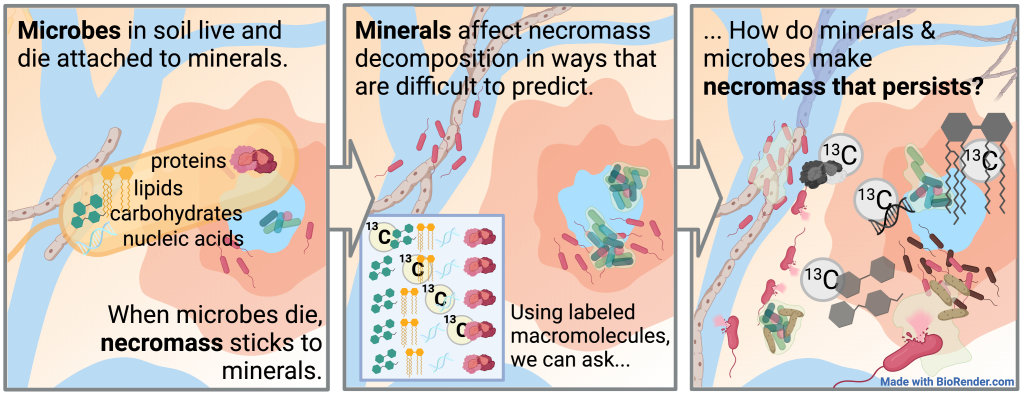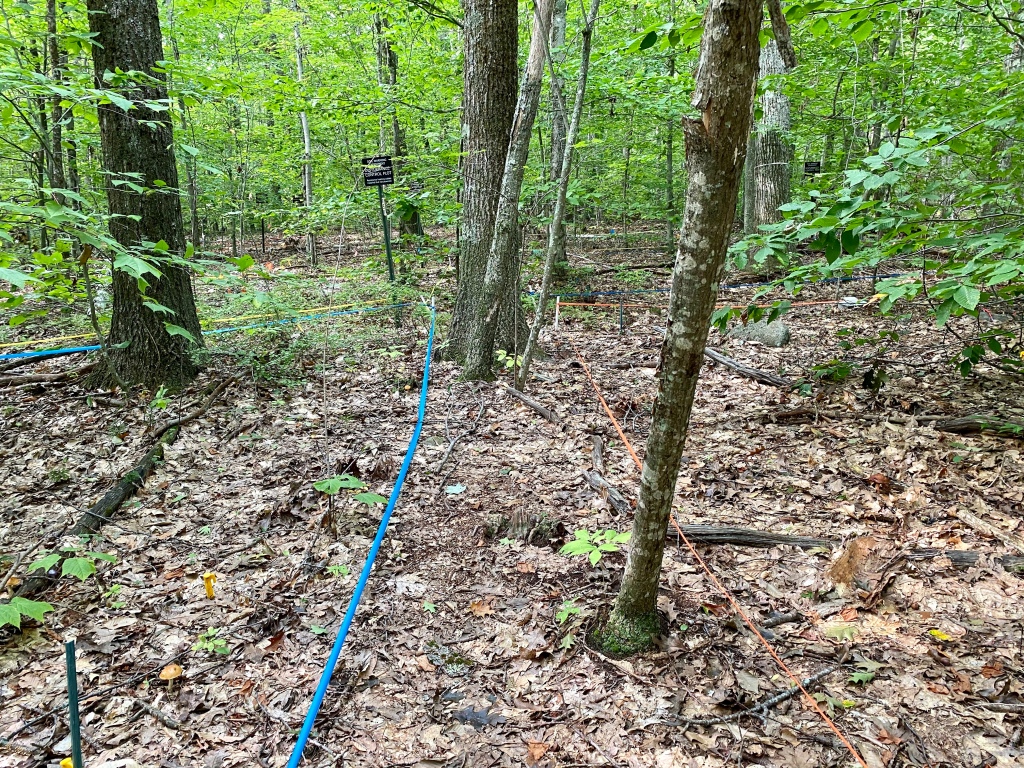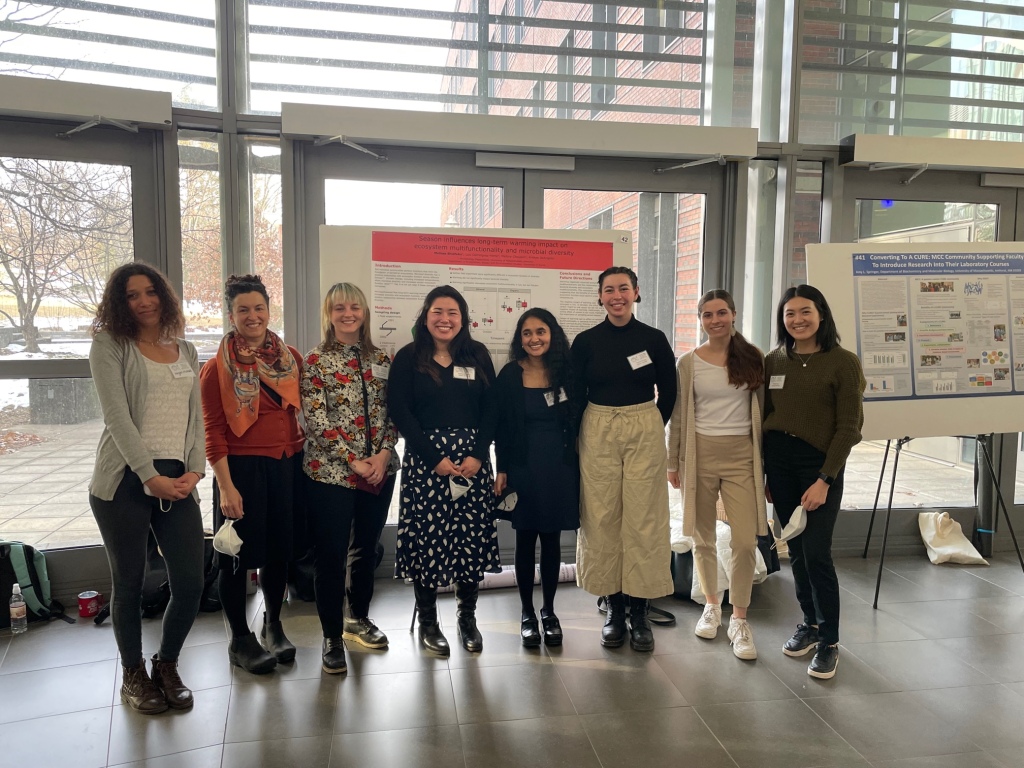We have a new project sponsored by the Department of Energy to address the question, How do microbes and minerals make necromass that persists?
We are looking for a graduate student researcher to conduct field and laboratory studies to trace 13C-labeled substrates through food webs and into soil compartments into stable, microbial, or mineral (CO2) fates.

Are you interested in research at the intersection of microbiology, ecology, and biogeochemistry? Do you want to work with molecular data, sequencing, stable isotopes, proteomics, and modeling? Do you want to work with an interdisciplinary team at the vibrant UMass Amherst in the beautiful Pioneer Valley?
Read more: Graduate research opportunity in microbiology of soil formationWe have funding for three years for a graduate student researcher to work on this project. Support includes 12 months of salary, paid tuition and fees, and medical and dental insurance. The successful candidate must also gain admissions to the Microbiology Graduate Program at the University of Massachusetts Amherst.
The graduate student will collect soils from the warming experiment, conduct the substrate addition experiments, extract proteins for the SIP-proteomics (to be performed by NCSU), extract DNA and perform SIP-metagenomics and community analysis. In addition, they will assist with mentorship of our summer high school student interns who will work with their laboratory projects.
Students can expect to gain expertise in molecular, microbiology, and bioinformatics skills as part of their degree. They will publish at least one first-author paper in a major journal, with more likely. They will travel to at least one national and international meeting per year, in addition to the DOE PI meeting, and present their research. Please review our lab expectations to understand more about our lab culture and values.
To apply, email Kristen DeAngelis and attach your curriculum vitae and a brief statement of your goals and interests. Applications to either Microbiology or Organismic and Evolutionary Biology (OEB) programs are due to the Graduate School on December 1, 2022.

